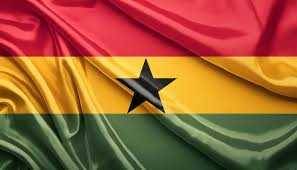The Presidents of Ghana and Their First Ladies: A Historical Perspective
Since Ghana gained independence in 1957, the country has witnessed a series of dynamic leaders, each bringing unique policies and visions for the nation. Behind these leaders have stood remarkable First Ladies who have played significant roles in national and community development. From Dr. Kwame Nkrumah to Nana Addo Dankwa Akufo-Addo, the contributions of Ghanaian Presidents and their wives have significantly shaped the country’s history and social landscape.
Dr. Kwame Nkrumah and Fathia Nkrumah (1957–1966)
Dr. Kwame Nkrumah, Ghana’s first President, was a leading figure in the Pan-African movement. His vision of a united Africa was complemented by his Egyptian wife, Fathia Nkrumah, whom he married in 1957. Fathia became a symbol of Pan-African unity, as her marriage to Nkrumah represented the bond between West and North Africa. She played a crucial role in championing women's education and empowerment, while also supporting her husband during Ghana’s early independence struggles.
General Joseph Ankrah and Mrs. Juliana Ankrah (1966–1969)
General Ankrah served as the head of state after the coup that ousted Nkrumah. His wife, Juliana Ankrah, worked quietly behind the scenes, offering social support to the military regime. Though her role was less publicized, she contributed to community welfare programs during her tenure as First Lady.
Kofi Abrefa Busia and Mrs. Naa Morkor Busia (1969–1972)
Prime Minister Kofi Abrefa Busia led Ghana during the Second Republic. His wife, Naa Morkor Busia, was known for her elegance and dedication to promoting women's rights. A strong advocate for family values, she supported various initiatives focused on child welfare and women’s development.
General Ignatius Acheampong and Faustina Acheampong (1972–1978)
General Acheampong led Ghana through a period of significant economic challenges. His wife, Faustina Acheampong, became known for her grace and modesty. As First Lady, she contributed to charitable causes and worked on improving conditions for women and children in Ghana.
Jerry John Rawlings and Nana Konadu Agyeman-Rawlings (1981–2001)
Jerry John Rawlings emerged as a dominant figure in Ghanaian politics, leading both military and civilian administrations. His wife, Nana Konadu Agyeman-Rawlings, was one of Ghana's most influential First Ladies. She founded the 31st December Women’s Movement, which focused on women’s empowerment, education, and entrepreneurship. Nana Konadu’s activism made her a formidable force in Ghanaian politics, inspiring future First Ladies to take on more active roles.
John Agyekum Kufuor and Theresa Kufuor (2001–2009)
President John Kufuor’s tenure marked a period of economic growth and stability. His wife, Theresa Kufuor, a professional nurse, focused on healthcare and education. She spearheaded initiatives like the Mother and Child Community Development Foundation, which aimed to improve maternal and child health across the country.
John Evans Atta Mills and Ernestina Naadu Mills (2009–2012)
The late President John Atta Mills was admired for his humility and dedication to service. His wife, Ernestina Naadu Mills, a professional educator, shared his passion for education. As First Lady, she supported programs to enhance literacy and provide educational resources for underprivileged children.
John Dramani Mahama and Lordina Mahama (2012–2017)
John Mahama’s presidency saw the active involvement of his wife, Lordina Mahama, in humanitarian efforts. She led the Lordina Foundation, which focused on healthcare, education, and support for vulnerable groups. Lordina’s leadership in these areas cemented her legacy as one of Ghana's most philanthropic First Ladies.
Nana Addo Dankwa Akufo-Addo and Rebecca Akufo-Addo (2017–Present)
Nana Akufo-Addo’s presidency has been marked by significant economic and social reforms. His wife, Rebecca Akufo-Addo, has been an advocate for health and social welfare. She established the Rebecca Foundation, which has initiated projects in education, healthcare, and women’s empowerment. Her leadership in constructing a state-of-the-art mother and baby unit at Komfo Anokye Teaching Hospital underscores her commitment to maternal and child health.
Conclusion
The First Ladies of Ghana have evolved from being quiet supporters to active leaders championing social causes. From Fathia Nkrumah’s symbolism to Rebecca Akufo-Addo’s modern philanthropic efforts, these women have left an indelible mark on Ghana's development. Together with their Presidential spouses, they have shaped the nation’s history, blending leadership with compassion and service.




No comments yet
Be the first to share your thoughts!